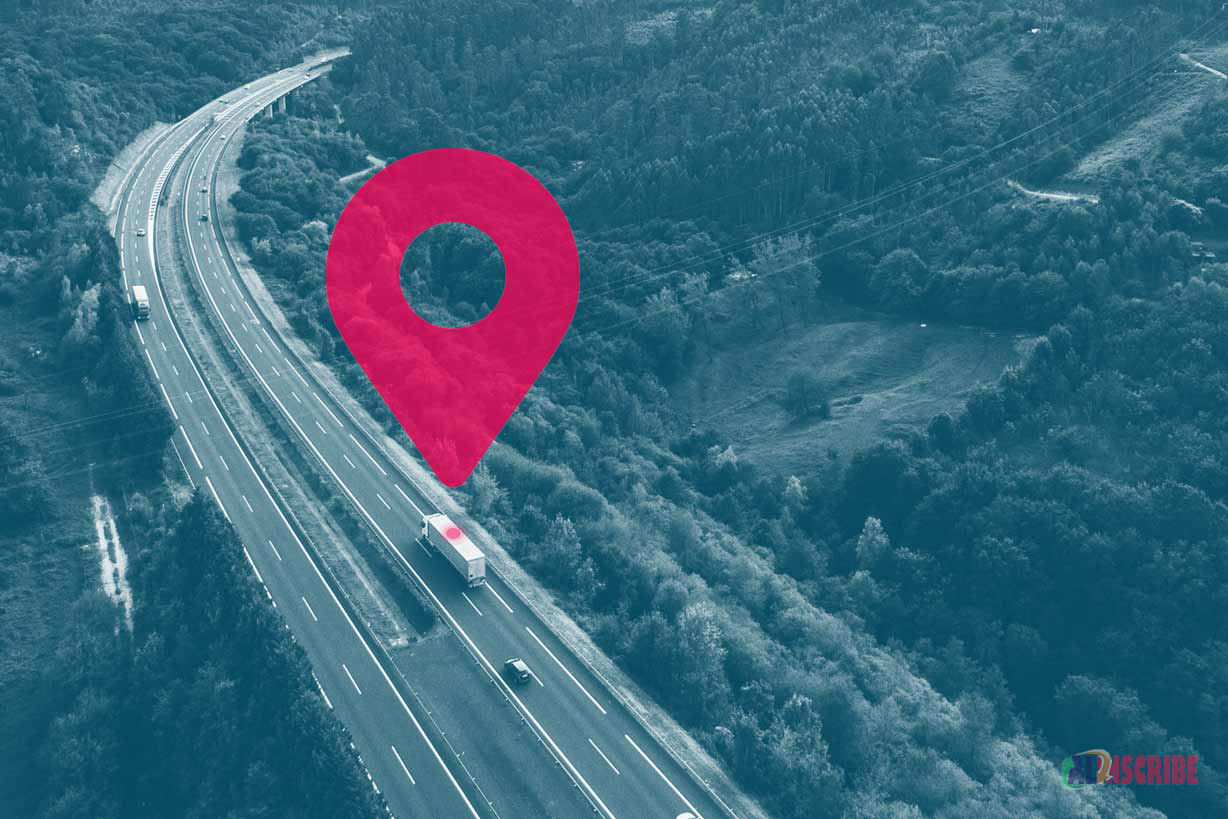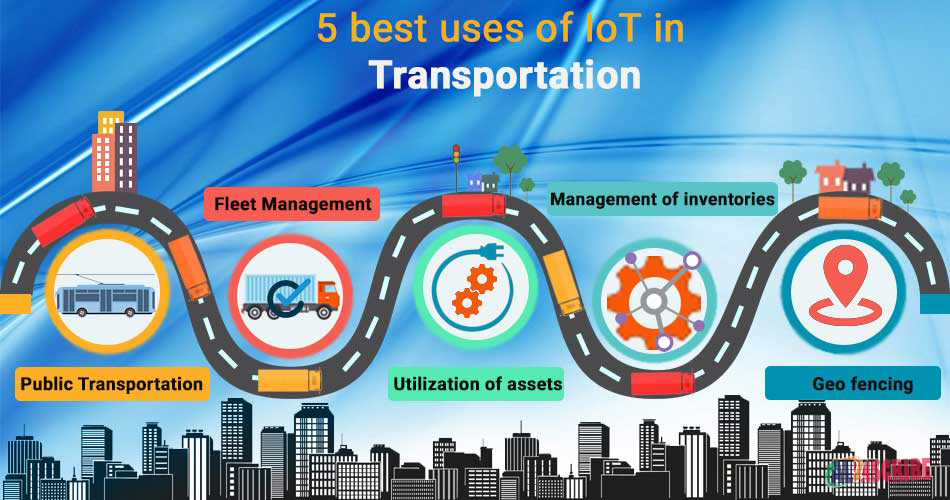Role Of ERP In Logistics And Supply Chain Management

The logistics and warehousing industry is one of the largest and speediest growing industries in the world as it holds a very crucial role in the advancement of the country’s economy and society. In order to survive and sustain in this highly competitive market, logistics enterprises ought to have robust Enterprise Resource Planning (ERP) systems in place to speed up their processes, reduce their costs, and enhance their performance. Implementing supply chain management ERP software for logistics and warehousing is an important instrument to improve efficiency and this is the prerequisite for modern companies to achieve a competitive advantage in logistics and supply chain management (SCM). As a matter of fact, SCM can be a powerful strategy to help obtain a better competitive position, develop strong ties between suppliers and customers, provide better integration of production and distribution systems, and ultimately heighten customer satisfaction.
supply chain management ERP systems are acclaimed worldwide to have huge potential to improve business performance and streamline business operations. If implemented prudently in the logistics sector, then supply chain management ERP systems will yield the most empirical results in the following areas: transport management and documentation, accounting, sorting, and distribution. Meantime, it can be considered cost-effective as it reduces the manual efforts approximately by 60 to 80%. This article is dedicated to the importance of supply chain management ERP software for supply chain management, the benefits to be derived from enterprise applications, and the significance of the Covid-19 pandemic on logistics and supply chain. It further extends the top 10 supply chain management ERP software for logistics and warehousing management and digitalization in supply chain management and logistics like application of smart and digital solutions for an Industry 4.0 Environment.

Significant Role of Supply Chain Management ERP Software in Logistics and Warehousing:
Logistics Chain Management or say, Supply Chain Management deals with the movement of materials, goods, and services through logistics chain, i.e., from the point of origin to point of sale/consumption to meet the demands of corporations and customers. Without taking into consideration the global market supply chain practicalities, it is no longer possible for companies to achieve success. It is just not sufficient for the firms to celebrate their triumph by only integrating the design, procurement, manufacturing, and distribution processes just with a few new methods and advanced technology. The establishment of supply chain networks is definitely one of the main reasons for success. SCM implementations majorly work on the following set of activities namely, strategic supplier partnership, customer relationship, service management, purchasing, foreign procurement, level of information sharing, and information sharing quality and delays. Strategic supplier partnership, customer relationship, and information sharing are proven to provide substantial competitive advantages for the companies.
- The concept of supplier partnership is highly based on determining the type and sort of the stock. But how does it benefit? Partnerships relegate transactions costs and offers advantages to the suppliers and firms in terms of technology transfer and improved communication. It also promotes mutual trust, instituting long-term as well as balanced partnerships, and sharing of resources. Suppliers’ performance has an impactful mark on product quality, production costs, delivery time, technology, and innovation which also strongly affects the competitiveness and profitability of the organization.
- Customer Relationship is another element of SCM practices. It includes the creation of long-term relationship management practices and the development of customer satisfaction. For ensuring customers’ contentment and gratification, companies designate appropriate suppliers for each customer’s needs. Companies accelerate their performance by destroying the useless knowledge stage at the chain level, instead, obtaining information about customer databases. The cooperation between them helps to obtain real-time information about customer and supplier needs. Thus, there is a need to understand the framework of customer relationships.
- The level of Information sharing, and quality delineates the information exchange efficiency in a partnership as these elements are very crucial in the development of healthy and successful partnerships. Suppliers and customers can collaborate to share critical information and industrial property, to improve and develop various rudiments of the supply chain, such as quality and costs. If you want to obtain the best management results for the supply chain and assurance of certain level of flexibility, then companies must consider information sharing as a strategic resource and ensure that notification is received with minimum delay and disruption.
As logistics industry is considered to be the lifeblood of all economies because of the great development it exhibited during recent years globally, and Enterprise Resource Planning (ERP) systems which are regarded as the backbone of any organization, the merger of supply chain management ERP software for logistics and warehousing will prove to be extremely beneficial for both, economy, and the society.
Features of Supply Chain Management ERP Software:
Supply chain management ERP Software is customized individually for each company, but typically it includes the following features:
- Creation of a systematic database of customers and their orders and other information on items, source location, destination, and expected date of delivery for a particular transport service.
- Module to plan the allocation for the trucks based company on expected delivery timings. Tools to track the whereabouts of the available trucks, drivers, and support staff.
- Feature to track all the trucks if they are OnTrip, idle, or in maintenance.
- Platform to generate logistics-related documents like LR (Lorry Receipt), freight challan, and other receipts related to delivery and procurement of goods.
- An expired insurance by chance, or a state permit can place your consignment at risk. Therefore, a module to record documents like insurance of trucks, driver licenses, state permits, and other registrations is required within supply chain management ERP software.
- Tool to maintain records of all the activities concerned with truck maintenance such as repairs, filter change, scheduling of oil changes, spare parts of the truck, and other related expenses.
- Tool for warehouse management to monitor warehouse layout, inventory levels, picking and packing goods, receiving and shipping, labor management and reporting.
- Logistics tools that can use route optimization to discover fuel and time efficient routes.
Benefits of implementing supply chain management ERP software for logistics and warehousing companies:
1. Access to the Vendor Portal:
The very first benefit is to get secure access to the vendor portal. supply chain management ERP software is installed into business operations which comes with a secured login account for registered people. This permits a safe and sound login into their account for knowing the status of the logistics and other important details. Each and every communication is integrated through email or secured SMS systems allowing users to receive updates consistently.
2. Optimized Inventory Control:
Inventory management is a vital task for any logistics business. Implementation of Enterprise Applications enables one to view requests, orders, deliveries, and sales from a centralized location. Logistics companies can use these tools to carry out inbound and outbound orders to determine out-of-stock inventory.
3. Scheduling Maintenance:
Transportation vehicles and infrastructure are those assets that need to be taken care of on a timely basis. The assets bring value to the organizations and that’s why their maintenance must be planned well and regularly.
4. Improved Distribution Management:
Supply chain management ERP software for supply chain management and logistics ensures improved channels of distribution and faster supply. It speeds up distribution times. It enables freight companies to manage their distribution flow incisively and allows suppliers, drivers, distributors, and retailers to be on the same page by sending real-time information about traffic and customer address.
5. Real-time Tracking:

Whenever in transit, vehicles need to be traced on a real-time basis to update customers. We can take the example of any ecommerce website where you are kept informed about your order, where has it reached, what is its point of origin, and how many days will it take to arrive at your location. With the help of GPS (Global Positioning System), you can track vehicles that are in transit or idle. By leveraging advanced location features alongwith business intelligence, you can develop smarter business plans.
6. Staff Management:
You can manage your workforce from an integrated supply chain management ERP platform. Better workforce choices can be made by monitoring all operations that go under human resources. Freight operator’s break period, overtime pay, vacation days, etc. can be tracked.
7. Remote Location Access:
Supply chain management ERP installed for logistics and SCM offers another flexible benefit which is remote location access. It helps managers and operators to be in sync 24/7 as it might not be possible for business leaders to keep logged in to their systems always.
Impact of Covid-19 on Supply Chain Management:
During the advent of the global pandemic Covid-19, supply chain management had severe problems coping with unprecedented demand for certain products when there had been simultaneous restrictions enforced on production and transportation. Manufacturers and distributors found it difficult to replace or replenish their inventory, equipment or machinery due to disruptions in the supply chain globally. Importers and exporters also discovered that it is challenging to deliver or bring in goods across international borders, as the harbors and airports which are the main routes for international exchange of goods have been ruthlessly impacted by constraints and slowdown of industrial activities of major trading partners.
Consequently, players in the logistics, warehousing, transport and supply chain industries thought that in order to mitigate the impact of Covid-19 on business activities, they must deploy innovative measures in inventory and distribution management and engage in strategic partnerships with giant players and intermediaries across the supply chain.
Technology bears the potential to solve the problem of lack of visibility in the supply chain. Its adoption is critical to maintaining effective supply chains. And if planned and executed in an orderly manner, better forecasting of inventory levels will be achieved, alongwith other related advantages like the efficiency of employees, proper accountability, increased warehouse savings, etc.
Supply chain management ERP systems have played quite a supportive role by maintaining lists of approved supplier relationships, customer service, and information sharing.
Check out the list below of Enterprise Resource Planning (ERP) software that specifically caters to the needs of Logistics and Supply Chain Management:
- Infor WMS
- Oracle NetSuite CRM
- Tactic ERP & CRM
- Route4Me
- Lighthouse ERP
- E2Open
- Epicor
- Locate2u
- Ramco
- Softlink
- Manhattan Associates
Digitalization in Supply Chain Management and Logistics:
The current digitalization trend has put the existing business models to the test and questions prevailing business processes and logic. Companies realized that they are in an increasingly volatile environment and may face an ever-increasing upsurge in demand for flexibility. Logistics and supply chain management shape these processes and desires for innovative concepts to pull off the requirements of this digital age. Of course, the dense interweaving of physical and digital space will pose new risks related to data security, data interchange, and acquisition. Contrary to that, it is able to create millions of opportunities to optimize, become more flexible, and moderate risks in the supply chain.
Must read the article Embarking on Digital Transformation Journey: Reliance on ERP
1. Blockchain Technology in Supply Chain and Logistics:
Blockchain has become the latest hype in Fintech, with almost daily announcements of new startups and corporate projects. Now the logistics and SCM community have also caught on and slowly realizing the impact Blockchain may have on their industry. Blockchain promises to create transparency so that every member of the network has access to the same data, delivering a single point of truth. Likewise, supply chain transparency is one of the most important but toughest to achieve important areas for logistics and SCM. However, it is a sad truth that Blockchain is known only by a few logistics experts and only fewer pursue implementation plans.
2. IoT (Internet of Things):
IoT technologies can be deployed to monitor the location and status of freight units and vehicles, and as a result, real-time data such as location and other IoT sensor data can be used to influence the logistics decision-making which can directly be used to control freight transportation activities. Stating a large number of IoT objects (vehicles, shipments e,tc.), logistics and warehousing can be one of the most promising industries for utilizing the applications of Blockchain and IoT.

Walmart was recently granted a patent that aimed at improving last-mile logistics by connecting delivery drones through Blockchain transforming them into Smart Drones. IoT enables the collection of real-time data over the logistics network that can be exchanged securely between parties and used for managing the decision-making related to control of the freight transportation activities.
3. Web-based Transportation Infrastructure:
Companies in the transportation sector have tried to develop their IT infrastructure in recent years giving their clients easier access to the services they provide. Nowadays, mobile phones and websites allow to create accounts book transports, make pick-up/delivery appointments, and pay their invoices comfortably. The ultimate goal should be to develop decentralized, open, and standards-based infrastructure for transportation in order to provide adequate technology to all the market participants. Their vision is to interconnect the existing IT systems of transport companies on a protocol level instead of connecting each of them into a central hub.
4. Digitization in Air Cargo:
The air cargo consists of various parties: the forwarders, local truckers, handling agents, and many others, we can say that parties are involved in a dynamic network. Digitization can be an important enabler to optimize the physical shipment flow between the forwarder and cargo handling agent which can help reduce waiting times. Digital exchange of information via Electronic Data Interchange (EDI) improves resource utilization, reduces costs, improves data quality, and helps strengthen the image of the company.
It is a clear fact that if the vision of Industry 4.0 is realized, then most enterprise processes will tend to become digitized. We would be witnessing the evolution of the traditional supply chain toward an interconnected, smart, and highly efficient supply chain ecosystem!
Article Comments
Similar Articles
Articles Search
Sponsor
There are zero sub-categories in this parent category.
There are zero sub-categories in this parent category.
There are zero sub-categories in this parent category.
















